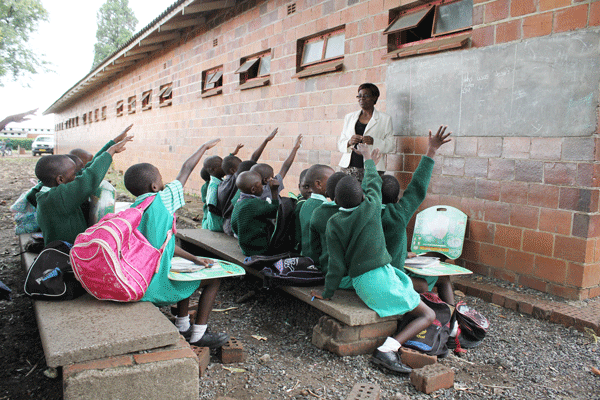
By Tim Middleton
There was once an English teacher whose day was made by a young 14-year-old boy. The young boy in question came up to him at the end of one lesson, when the class with learning difficulties had reached page 200 of a novel which had 208 pages, and declared enthusiastically to the teacher: “Gosh, it is getting good now, sir!” Just in time, perhaps, but victory, nonetheless! It may have seemed to the teacher like drawing blood from a stone, but they had got there in the end! Interestingly, the same young boy in an essay described confidently how he was going to play for the Springboks rugby team, who would go on to beat the All Blacks, and then he would get married and three months later have a baby…! Clearly, though, he had not gone far with the Science syllabus.
It is no understatement to say that most pupils struggle with their subjects for large periods of time. They sweat blood, sweat and tears in the darkest hours of the night, wishing they did not have to go through the ordeal that they faced in the upcoming examination. They agonise over questions, struggle in the darkness, being pushed from one unjust and irrelevant question to another with no one seeming to care, abandoned by those they thought would stand by them, facing a slow and painful death, lonely, deserted. The subject is gradually killing them, sucking the very life out of them, suffocating them slowly before piercing them through the heart with a sharp and final lunge, in a very public and humiliating manner.
And then, just when everyone thought it was all over, just when the subject seemed dead and buried, just when there appeared no light, no hope, no joy, no life, then comes that moment, sometimes like the dawn gradually bringing light, at other times as if a light switch was turned on. What has happened? The subject has come alive; it suddenly makes sense; it all becomes clear; it becomes personal as if the subject had called him by name; it all clicks and falls into place. This was the “Eureka” moment that was first suggested, so the story goes, when the famous Greek mathematician, physicist, engineer, inventor, and astronomer called Archimedes discovered a great scientific fact while sitting in his bath, after which he is alleged, in his excitement, to have run through the streets naked, shouting “Eureka” (meaning “I found it”!). It is the “light bulb” moment; it is the “Eureka” moment; it is the “Bingo!” moment.
Have we had that “Eureka” moment reading this article, had that moment when it clicks, when we see something we had not seen before? Have we realised it is getting good now, sir? Have we seen something new about education? The “Eureka” moment is in fact an “Hallelujah” moment! Have we seen the parallel of the experience described above to that of this Easter message? Have we had that resurrection moment when the subject that was dead has risen from the grave and come alive? It is the Easter moment when that which was dead is now alive; it is the “Hallelujah” moment!
It is our desire for every child to go through the educational world experiencing the Easter world. We want all pupils to find new life in the subjects they study, to find new meaning previously and apparently hidden, to come alive with naked excitement in new discoveries, in personal applications, as if the very subject finds them in a beautiful garden and calls them gently by their name.
The same English teacher mentioned in the opening paragraph had his own “Eureka” moment aged 16 when required during a class to analyse a passage from a novel by DH Lawrence entitled The Rainbow and it all just flowed out. Suddenly he began to see things in the passage that he had never seen before; suddenly he became excited and enthusiastic with all the wonders that were contained within, but had never been revealed. The gates were opened wide; the hard, heavy stone was rolled away; the passage was alive, full of meaning and excitement! Eureka!
Hallelujah!
- Chamisa under fire over US$120K donation
- Mavhunga puts DeMbare into Chibuku quarterfinals
- Pension funds bet on Cabora Bassa oilfields
- Councils defy govt fire tender directive
Keep Reading
Teachers are certainly not called to make their pupils run through the streets naked, but they are there to help the children come into a fresh, clear, unequivocal, beautiful, life-filling understanding. Education is not Easter; education can never bring new life to an individual in the way that the message of Easter can. However, each subject can rise from the dead and can come alive. The best response we can have to the “Eureka” moment is to make it an “Hallelujah” moment. Happy Eureka!
l Tim Middleton is the executive director of the Association of Trust Schools [ATS]. The views expressed in this article, however, are solely those of the author in his private capacity and do not necessarily represent the views of the ATS.
email: [email protected]
website: www.atschisz.co.zw











